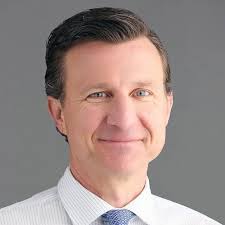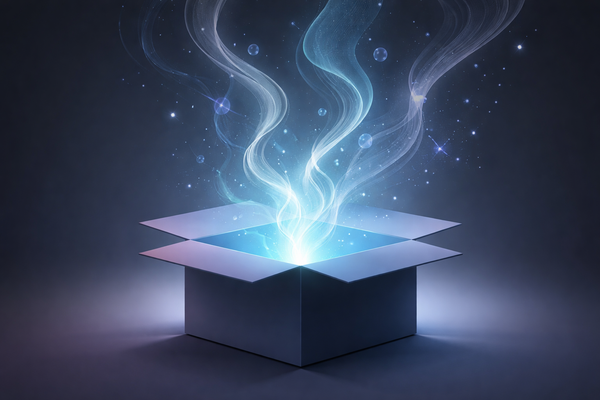Breadcrumb Philosophy (Guest Writer)


I think that most philosophical disagreements come from unacknowledged differences in assumptions and definitions. Breadcrumb philosophy is the idea that in order to truly understand our arguments, we can follow them back to their original assumptions and what the included terms mean. This is not a new idea and draws some parallels to Pyrrhonian skepticism, although it does not necessarily require or expect that we ultimately would have no beliefs. Rather it suggests that many of the beliefs we have are contingent on assumptions that may not be fully evaluated or acknowledged, which can lead to unintended or erroneous conclusions. Following these back to the "beginning" can clarify what truly lies at the foundation and what has been smuggled in. Or at the very least, we can flag the definitions and assumptions we make so that if we get lost or hit a dead end, we can trace our path back to these spots, re-evaluate the definitions or assumptions we flagged and consider alternate routes.
Who Am I?
This seems so basic. Maybe the most basic question we can ask. It has been suggested as perhaps the only question worth asking and the path to true understanding of our relationship with the world, maybe the world itself. So what is it like to unpack this question? “Who” seems redundant to “I” as it assumes linguistically that the answer is a person. This may seem like it borders on absurd, but it also acknowledges that we have already made an assumption about the answer. Perhaps it brings with it a type of physicalism that equates me with my physical body. Or rather it could equate me with a type of experience that only a person can have. Both of these seem like contingent claims that may not necessarily be true. Recognizing this lets us at least entertain delimiting this to include broader possibilities. So instead perhaps we say:
What Am I?
This seems a little deeper, but what else is smuggled into this question? At least “what” affords more possibilities than “who”, but might still unintentionally constrain our answers. We could say that we are the body we inhabit, but this seems fleeting. My current physical body may share none of the particles that composed my it 10 years ago. The whole Ship of Theseus thing. Was I someone else then or not? Intuitively I would argue that I am the same person. Or at least it is hard to imagine that I am anything if I don’t persist in spite of the change in the physical makeup of my body. Does this completely preclude my identification of “I” with my physical body? It seems like it precludes my identification with any specific makeup of my physical body at any given point in time, but does it preclude me from being identified with the continuation of my physical body? There is something interesting here, I think, about the process of continuation, but maybe I’ll come back to that…
Descartes was a great breadcrumb philosopher. Famously he argued that there is no way to definitively prove that the external world is not an illusion created by an evil genius to
deceive him. The characteristics of the demon seem irrelevant here (as opposed to a brain in a vat or a Matrix), as the idea is simply that we cannot be truly certain that any of the physical world we sense is what we think it is. Or that it actually exists outside of our mind at all (note: I’m using mind here as synonymous with awareness or experience, not as a synonym for brain or some physical process that creates experience). But it doesn’t stop there - it suggests that this evil genius could even have caused me to be wrong about my beliefs regarding more abstract concepts like addition or shapes. In fact, there is no belief I hold which could not be properly doubted if it could be the deception of this evil genius. Including the belief that I am something, and that it would even be appropriate to ask “What” I am. So maybe we back up again.
Am I?
What, if anything, remains after we introduce the possibility that everything external to me does not actually exist. In other words, if the basis for all of my beliefs is actually an extraordinary illusion, what is left? For Descartes, all that is left is the fact that he is experiencing anything at all. In other words, the fact that he is available to be deceived implies that he exists. The deception requires his awareness, such that no amount of deception can undermine the existence of his awareness. I think, therefore I am. This seems very basic, but is there another breadcrumb here? By incorporating a deceiver (or some external deception/Matrix/vat for my brain), Descartes’ argument seems dualistic, but do we actually need the deceiver to make the same argument? In other words, if the only thing I can ever assert without contingence or doubt is that I am having an experience, why can’t I doubt the deception? Does the experience I have require something outside of me in order for it to exist? This seems like an assumption - not unreasonable but is it necessary or justified? It seems like the only thing I can claim without any additional assumptions or contingencies is that I am aware. In other words, if I am anything, I am aware.
What is awareness?
It’s hard not to answer this without being circular or redundant. Regardless of whether there is anything external that I am interacting with that influences my awareness, awareness nonetheless seems to be the basis of experience. Or at least the basis of whatever we could reasonably claim to exist.
So am I just my experience? Is this the last breadcrumb? Maybe, but what else is assumed within “I”? Does it require that “I” am carved out of something else? Am I everything? Or do I exist in relation to anything else? Descartes argued that anything else can be doubted. So is my awareness the bottom?
What about time? It seems as though my awareness is ordered and that its contents sit in relation to each other within a sense of time. At least I am aware of prior awareness up until this moment. But just the use of the words moment and prior and until seem to assume an ordered time. Is awareness dependent on a sense of time? Maybe just prior awareness? What would it be like to be aware with no sense of prior awareness? That seems hard to imagine. Without a reference, it seems like "now" is vanishingly brief, even hard to define.
So could awareness of anything exist without at least an awareness of some immediate predecessor? I've again tried to smuggle time in with the idea of a predecessor. Maybe there is just awareness, and I’m mapping onto it a sense of time that creates an order. It seems redundant to say that I am doing something to create the awareness I am. Maybe time is the wrong concept. Maybe the sense of “prior” awareness is not quite right, maybe time is just the downstream sense of what change feels like. Maybe change is enough and the awareness of this creates the sense of time. It also seems to imply that there is something other than awareness that is changing that I can experience. But if all I can assert is awareness, then change would just be part of awareness, right?
Where does this change come from? Did I create this change? Presumably not, for the same reason that it seems like a non-starter to say that I am doing the thing that my existence is contingent upon. If I am anything, it is what awareness is like. But awareness is contingent on change. Or perhaps more precisely, awareness is the experience of change. So rather than substances interacting everywhere, maybe there is just change. Maybe it's just change all the way down. Or impermance. Or process. Or becoming. Is this what Whitehead was getting at? Probably not, but seems like an interesting place to start...




